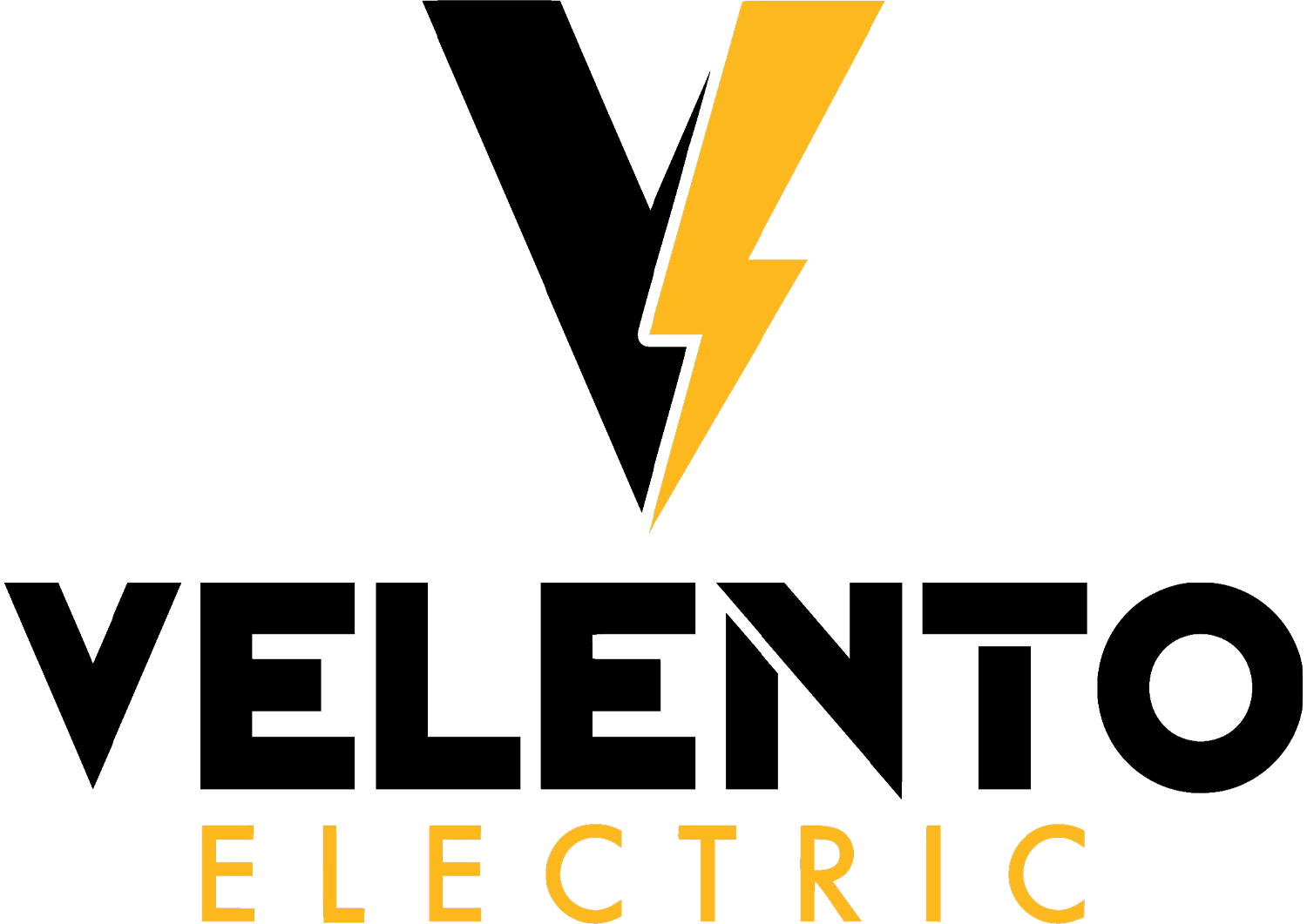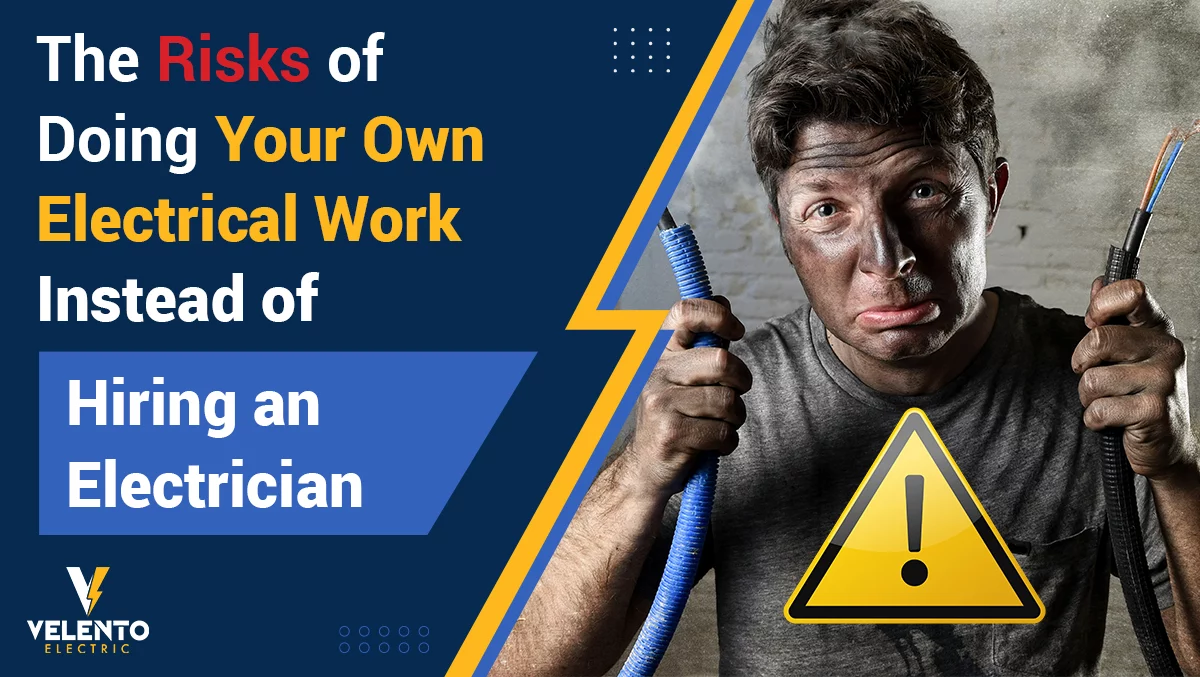The Risks of Doing Your Own Electrical Work Instead of Hiring an Electrician
Electrical projects can be tempting to tackle on your own, especially if you’re trying to save money or enjoy DIY challenges. However, working on your home’s electrical system without proper training can lead to serious safety hazards, costly repairs, and legal complications. Here’s why hiring a licensed electrician is the safer, smarter choice.
- Increased Risk of Electrical Fires
What Can Go Wrong:
- Faulty wiring or connections can cause overheating, sparks, or electrical shorts, leading to house fires.
- Improperly installed outlets, switches, or fixtures can overheat and ignite surrounding materials.
Why It’s Risky:
- Licensed electricians understand safety codes and ensure that installations meet fire prevention standards.
- They use the proper materials and techniques to prevent dangerous electrical faults.
- Electrocution and Injury
What Can Go Wrong:
- Attempting electrical work without the necessary knowledge or protective equipment can result in severe shocks or burns.
- Even low-voltage systems can cause serious injuries if handled incorrectly.
Why It’s Risky:
- Professionals are trained to work safely with live circuits and know how to de-energize systems properly.
- They follow strict safety protocols to protect themselves and your household during installations or repairs.
- Code Violations
What Can Go Wrong:
- DIY electrical work often fails to comply with local building codes and regulations.
- Non-compliant installations can lead to fines, failed inspections, or mandatory rewiring.
Why It’s Risky:
- Electricians are familiar with national and local codes, ensuring your work meets legal and safety requirements.
- Code-compliant work protects your investment and ensures a smoother resale process if you sell your home.
- Insurance Issues
What Can Go Wrong:
- Insurance policies may not cover damages caused by non-professional electrical work.
- A DIY electrical fire or injury could leave you responsible for significant repair or medical costs.
Why It’s Risky:
- Hiring a licensed electrician ensures that your work is covered and recognized by insurance providers.
- Proper documentation and permits demonstrate compliance with insurance requirements.
- Hidden Long-Term Costs
What Can Go Wrong:
- Poorly done DIY electrical work may lead to recurring problems, such as flickering lights, tripped breakers, or damaged appliances.
- Over time, these issues can require costly troubleshooting and repairs.
Why It’s Risky:
- Professional electricians do the job right the first time, saving you from future headaches and expenses.
- Quality work ensures the longevity and reliability of your electrical system.
- Potential for Overloading Circuits
What Can Go Wrong:
- Adding new outlets, fixtures, or appliances without proper load calculations can overload circuits.
- Overloaded circuits increase the risk of electrical fires and power outages.
Why It’s Risky:
- Electricians calculate the load capacity of circuits and panels to prevent overloading.
- They can upgrade your system if necessary to handle increased electrical demand.
- Improper Grounding
What Can Go Wrong:
- Inadequate grounding can lead to dangerous electrical shocks and equipment malfunctions.
- Grounding issues may not be immediately apparent but can cause severe damage during power surges or storms.
Why It’s Risky:
- Professionals ensure that all components are properly grounded to protect your home and devices.
- They know how to test and verify grounding connections for maximum safety.
- Lack of Proper Tools and Expertise
What Can Go Wrong:
- Without specialized tools, it’s easy to make mistakes or cause damage during electrical work.
- Misdiagnosing an issue can lead to unnecessary repairs or exacerbate the problem.
Why It’s Risky:
- Electricians come equipped with the right tools and diagnostic equipment to handle any situation.
- Their training allows them to identify and address issues accurately and efficiently.
- Increased Liability
What Can Go Wrong:
- If someone else is injured due to faulty electrical work, you could be held legally responsible.
- Faulty DIY work discovered during an inspection could delay or derail home sales.
Why It’s Risky:
- Licensed electricians carry liability insurance, protecting you from potential lawsuits or claims.
- Proper documentation of professional work ensures compliance with legal and real estate requirements.
- Wasted Time and Frustration
What Can Go Wrong:
- Electrical work often takes longer than expected for inexperienced DIYers.
- Incorrect installations may require professional intervention, negating any initial savings.
Why It’s Risky:
- Professionals complete projects quickly and efficiently, minimizing disruption to your daily life.
- Their expertise ensures you can avoid frustrating setbacks or extended downtime.
- Risk of Damaging Expensive Electronics and Appliances
What Can Go Wrong:
- Improper wiring, grounding, or circuit overloading can cause power surges, leading to damage to your electronics and appliances.
- Faulty installations may void warranties on your expensive devices.
Why It’s Risky:
- Licensed electricians ensure that circuits and outlets are correctly installed to handle the power needs of your home’s devices.
- Professionals can install surge protectors or dedicated circuits to safeguard sensitive electronics.
- Improper Permits and Inspections
What Can Go Wrong:
- Many electrical projects require permits and inspections to ensure they meet local codes.
- DIY work without proper permits can lead to fines or legal issues during property sales.
Why It’s Risky:
- Electricians handle the permitting process and ensure the work passes inspections.
- Code-compliant installations increase the resale value of your home and prevent legal complications.
- Unforeseen Hazards in Older Homes
What Can Go Wrong:
- Older homes may have outdated wiring systems like knob-and-tube or aluminum wiring, which require special handling.
- DIY work can disturb hazardous materials like asbestos insulation, posing additional risks.
Why It’s Risky:
- Electricians are trained to identify and address issues specific to older homes safely.
- They can recommend updates to ensure your electrical system meets modern safety standards.
- Voided Homeowner’s Insurance Policies
What Can Go Wrong:
- Many insurance policies require that electrical work be performed by licensed professionals.
- In the event of a fire or accident caused by DIY electrical work, your insurance claim may be denied.
Why It’s Risky:
- Hiring a licensed electrician ensures your work is documented and meets the standards required by your insurer.
- This documentation protects you in case of future claims or audits.
- Temporary Fixes That Lead to Bigger Problems
What Can Go Wrong:
- DIY repairs often involve temporary fixes, such as using electrical tape or improper connectors, which can fail over time.
- These shortcuts may mask the underlying problem and lead to more significant issues later.
Why It’s Risky:
- Electricians diagnose and address the root cause of electrical problems, providing lasting solutions.
- Professional work ensures the integrity of your system and prevents recurring issues.
- Risk to Future Homebuyers
What Can Go Wrong:
- DIY electrical work may not be apparent during a casual inspection but can create risks for future homeowners.
- Hidden wiring errors or non-compliant installations can result in safety hazards or expensive repairs.
Why It’s Risky:
- Licensed electricians document their work and provide permits, ensuring the safety and compliance of the electrical system for future occupants.
- This transparency protects your reputation and avoids legal liabilities during home sales.
- Inadequate Troubleshooting Skills
What Can Go Wrong:
- Electrical problems often have multiple underlying causes that require expertise to diagnose.
- DIY attempts may misidentify the issue, leading to ineffective repairs or creating new problems.
Why It’s Risky:
- Electricians are trained to perform thorough diagnostics, ensuring that all issues are identified and resolved.
- They use advanced tools and techniques to pinpoint problems accurately.
- Lack of Proper Protective Measures
What Can Go Wrong:
- DIY projects often overlook essential safety measures, such as installing ground fault circuit interrupters (GFCIs) in wet areas or arc fault circuit interrupters (AFCIs) for bedrooms.
- This oversight can increase the risk of electrical shock or fire.
Why It’s Risky:
- Professionals ensure compliance with safety requirements, including the installation of protective devices in critical areas.
- These measures significantly reduce the risk of injury or property damage.
- Reduced Efficiency and Higher Utility Bills
What Can Go Wrong:
- Improper installations or wiring can cause inefficiencies in your electrical system, leading to higher energy consumption.
- DIY work may not consider the energy-saving benefits of modern electrical solutions.
Why It’s Risky:
- Electricians optimize your system for maximum efficiency, helping you save on energy bills.
- They can recommend upgrades like LED lighting or energy-efficient circuits to reduce long-term costs.
- Missed Opportunities for System Upgrades
What Can Go Wrong:
- DIYers may overlook opportunities to modernize their electrical systems, such as adding smart home technology, EV charging stations, or solar power integration.
- Sticking to outdated methods can limit your home’s functionality and value.
Why It’s Risky:
- Electricians stay updated on the latest advancements and can recommend upgrades that improve your home’s safety, convenience, and energy efficiency.
- Professional installations ensure compatibility with future technology.
- Environmental Risks from Improper Disposal
What Can Go Wrong:
- DIY electrical work may involve handling old wiring, circuit breakers, or light fixtures that need to be disposed of properly.
- Improper disposal of materials like fluorescent bulbs or batteries can release hazardous chemicals into the environment.
Why It’s Risky:
- Licensed electricians know how to responsibly dispose of electrical components, ensuring compliance with environmental regulations.
- They can recommend eco-friendly upgrades, such as LED lighting, which reduces waste and energy consumption.
- Risk of Legal Repercussions
What Can Go Wrong:
- Many jurisdictions have strict regulations requiring permits and professional oversight for electrical work.
- DIY work performed without the proper permits or inspections can result in fines or legal action if discovered during a home sale or renovation.
Why It’s Risky:
- Licensed electricians obtain the necessary permits and handle all regulatory requirements, protecting you from legal and financial penalties.
- Professional documentation ensures compliance, making it easier to sell or refinance your home in the future.
- Missed Warning Signs of Larger Problems
What Can Go Wrong:
- DIY repairs may only address surface-level issues, leaving hidden dangers like degraded wiring or overloaded circuits undetected.
- Over time, these overlooked problems can escalate into serious safety hazards.
Why It’s Risky:
- Electricians are trained to identify warning signs of larger issues, such as outdated panels or hidden damage from previous DIY work.
- Early detection saves money and reduces risks by addressing problems before they worsen.
- Impact on Home Resale Value
What Can Go Wrong:
- DIY electrical work often lacks documentation or fails to meet building codes, raising red flags for potential buyers during inspections.
- Non-compliant systems can delay or derail a home sale.
Why It’s Risky:
- Professional installations come with permits and certifications that reassure buyers and inspectors of the system’s safety and quality.
- Investing in licensed electrical work can increase your home’s resale value by ensuring compliance and reliability.
- Lack of Warranty or Guarantees
What Can Go Wrong:
- DIY work doesn’t come with a warranty, leaving you responsible for any mistakes or future repairs.
- If something goes wrong, you’ll need to spend additional time and money to fix it.
Why It’s Risky:
- Licensed electricians offer warranties on their work, providing peace of mind and financial protection.
- A professional guarantee ensures that any issues arising after installation will be promptly addressed.
- Overcomplicating Future Repairs
What Can Go Wrong:
- DIY wiring may not follow standard practices, making it difficult for future electricians to troubleshoot or repair.
- Incorrect labeling or undocumented changes can confuse professionals and delay repairs.
Why It’s Risky:
- Electricians follow standardized methods and provide clear documentation of their work, making future maintenance straightforward and efficient.
- Proper labeling and organization of circuits ensure the longevity and accessibility of your system.
- Risk of Overestimating Your Skills
What Can Go Wrong:
- Watching online tutorials or reading DIY guides might give you confidence, but electrical systems are complex and require professional expertise.
- Small mistakes, such as crossing wires or using the wrong gauge, can have dangerous consequences.
Why It’s Risky:
- Licensed electricians undergo extensive training and certification to handle electrical systems safely and accurately.
- Their expertise ensures the job is done correctly, avoiding potentially life-threatening errors.
- Increased Stress and Frustration
What Can Go Wrong:
- Electrical projects can be time-consuming and stressful, especially when faced with unexpected challenges or setbacks.
- DIY work may require repeated attempts to get it right, leading to frustration and wasted time.
Why It’s Risky:
- Hiring a professional saves you the stress of troubleshooting and ensures the work is completed efficiently.
- Their experience allows them to anticipate and overcome challenges with minimal disruption.
- Failure to Account for Future Needs
What Can Go Wrong:
- DIY work may not consider the growing electrical demands of modern homes, such as EV chargers, smart devices, or energy-efficient systems.
- Short-sighted installations may require expensive upgrades later.
Why It’s Risky:
- Electricians plan for future needs, ensuring your system is scalable and capable of handling new technologies or appliances.
- They can recommend proactive solutions to meet your home’s long-term electrical demands.
- Compromising Your Peace of Mind
What Can Go Wrong:
- Uncertainty about the quality or safety of your DIY work can leave you worried about potential risks or failures.
- Constantly questioning the reliability of your electrical system can be stressful.
Why It’s Risky:
- Professional electricians provide peace of mind by ensuring your system is safe, compliant, and built to last.
- Knowing the work is backed by expertise and warranties allows you to relax and focus on other priorities.
Examples of Electrical Work That Require a Professional
- Panel Upgrades
- Replacing or upgrading electrical panels is a complex task that requires advanced knowledge and permits.
- Rewiring Projects
- Rewiring involves extensive knowledge of electrical codes and system layouts to ensure safety.
- Adding Circuits
- Installing new circuits requires proper load calculations, wiring, and breaker installation.
- Outdoor Lighting
- Outdoor installations must be weatherproof and compliant with outdoor wiring regulations.
- Appliance Installations
- Heavy-duty appliances like stoves, dryers, or HVAC units require specialized wiring and connections.
Benefits of Hiring a Licensed Electrician
- Safety First: Protect your family, home, and belongings from electrical hazards.
- Expertise: Get the job done right with a trained and licensed professional.
- Peace of Mind: Rest assured that your work is compliant, durable, and reliable.
- Time Savings: Avoid wasting time on trial-and-error fixes by trusting an expert.
- Warranty and Insurance: Licensed electricians stand behind their work and provide the necessary documentation.
Why Hiring an Electrician is an Investment, Not an Expense
Key Benefits:
- Peace of Mind: Knowing that your electrical system is safe and compliant.
- Long-Term Savings: Avoiding costly repairs, inefficiencies, and code violations.
- Increased Home Value: Professional work enhances your property’s appeal and marketability.
- Safety for Your Family: Minimizing risks of fires, shocks, and other hazards.
When to Call a Licensed Electrician
If you’re unsure whether a project requires professional help, consider calling an electrician for:
- Upgrading or replacing your electrical panel.
- Installing or repairing wiring for new appliances.
- Addressing frequent circuit breaker trips or power outages.
- Adding outdoor or specialty lighting.
- Troubleshooting persistent electrical issues.
Final Thoughts: Leave Electrical Work to the Experts
DIY electrical work may seem like a cost-effective solution, but the risks far outweigh the benefits. From safety hazards and legal complications to increased costs and stress, attempting electrical work without proper training can have serious consequences. Hiring a licensed electrician ensures that your system is safe, reliable, and built to last.
Take the Safe Route
If you’re planning an electrical project or facing an issue in your home, don’t take unnecessary risks. Contact a licensed electrician to ensure the job is done right, the first time. Protect your home, your family, and your peace of mind by leaving electrical work to the experts.












